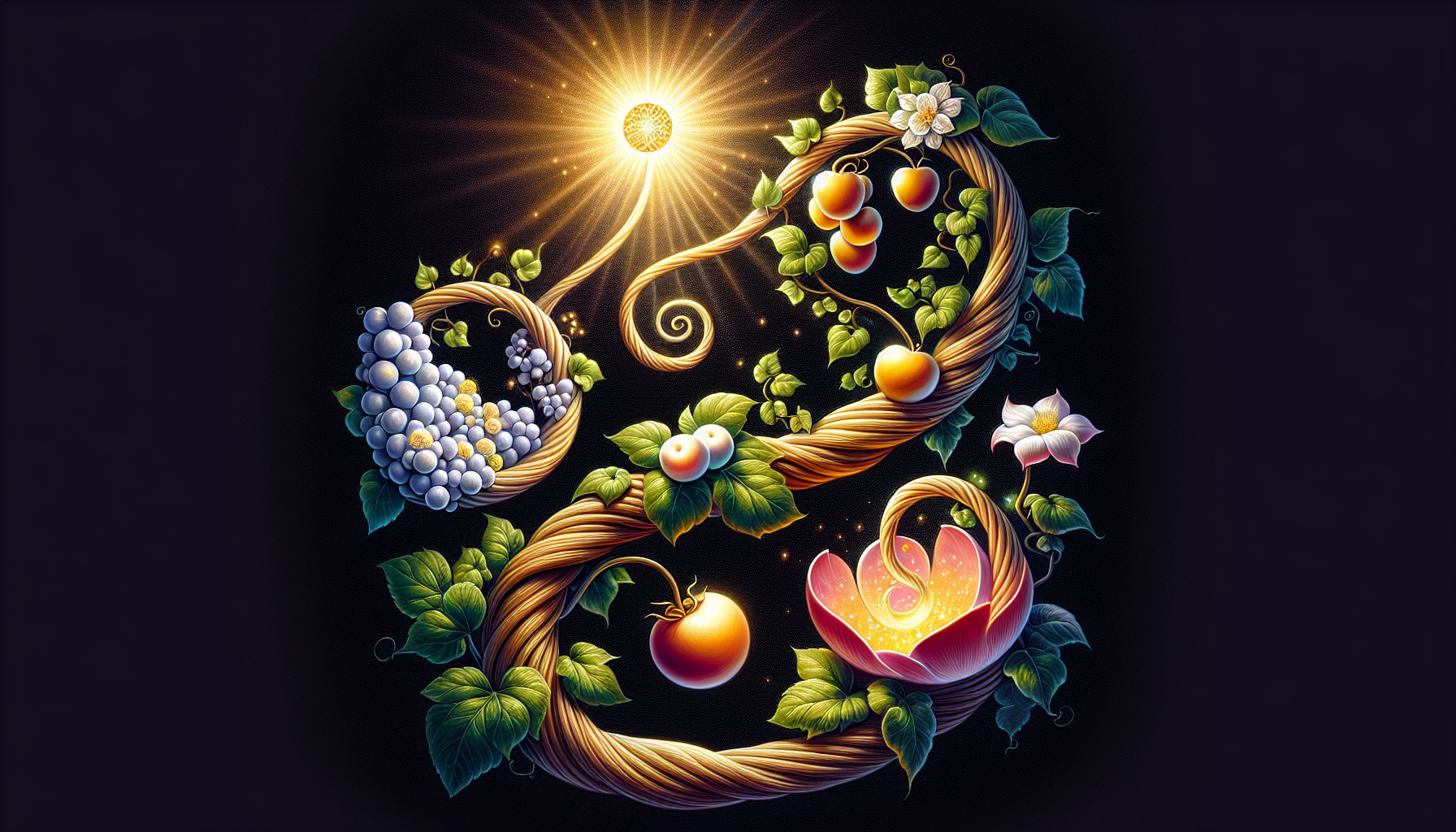How does God decide who goes to heaven? This question captures the essence of many spiritual seekers’ curiosities. Straightforward and unburdened by theological complexity, our exploration delves into Christianity’s varied responses, from the weight of faith and good deeds to the rich tapestry of grace, and briefly touches on insights from other religious traditions. Embark on this enlightening journey to understand salvation’s multifaceted criteria.
The Heavenly Verdict: Understanding God’s Decision-Making
In the exploration of divine judgement within the Christian story, it becomes clear that there is a deep connection between acts of faith, deeds carried out in life, and the leniency granted by God. Central to this woven narrative is the conviction that God’s approach to decision-making embodies equity, righteousness, and infinite affection. Human engagement remains key. Individual choice along with welcoming Jesus’ grace – and crucially placing one’s faith in Jesus Christ – are considered essential for access to eternal life. In times where uncertainty or hardship arises, many faithful reach out in prayer with heartfelt pleas beginning “dear God,” seeking direction and comfort.
When contemplating salvation according to Christian doctrine, it presents as both an open invitation yet requires strict adherence. Compelling adherents toward a transformed existence molded by teachings from scripture.
Key Takeaways on how God decide who goes to heaven
- The Christian doctrine states that salvation is attained through a combination of faith in Jesus Christ, embracing His teachings, and performing good deeds, reflecting a deeply personal yet divinely guided path to eternal life.
- Various Christian denominations interpret the path to salvation differently, with Catholics emphasizing sacraments and purgatory, Protestants advocating for salvation by faith alone, and Orthodox Christians supporting the synergy between faith and good works.
- Different world religions offer unique perspectives on the afterlife and divine judgment, such as Hinduism’s karma and dharma influencing rebirth, Buddhism’s ethical Eightfold Path to enlightenment, and Islam’s balance of faith and deeds impacting entry into paradise.
The Scale of Faith and Deeds
In the Christian tradition, faith and actions aren’t merely measures but a manifestation of an adherent’s fervent commitment to God. The cornerstone of redemption is one’s unshakable faith in Jesus Christ, a luminary that guides through life by mirroring the conduct exemplified by Jesus himself. Scripture emphasizes that mere belief falls short without accompanying acts. Deeds lend substance to conviction—integral components inseparable from authentic faith.
Henceforth, disciples of Christ are called upon to emulate Jesus’s quintessential compliance and compassion with behaviors that pay homage to Divine edicts—an essential demonstration within the true Christian odyssey.
The Sovereignty and Mercy of God
In the Christian understanding, salvation is intricately woven with threads of divine rule and compassion. The holy God watches over His creation, filled with a love that surpasses all human comprehension. Salvation is portrayed not as something we are entitled to but as a gracious gift from god who exercises sovereign choice in dispensing this mercy. To attribute any power equal or superior to God regarding salvation would be blasphemous, akin to idol worship since it is by His supreme will that souls’ destinies are shaped and through his eternal design that He created the way towards redemption. Indeed, God’s love for what He has made manifests in the offering of salvation. Yet some might opt to reject god, thereby relinquishing their chance at embracing His benevolence and forgiveness.
Amidst this sovereignty lies an enigmatic juxtaposition: predestination versus free will—a conundrum sparking debate among Christians throughout history while contemplating how exactly ‘god decides’. This dilemma probes deep into one’s faith as believers grapple with comprehending how both determinism under divinity coexists alongside humanity’s capacity for autonomous choices within Christianity’s doctrinal context on matters concerning everlasting life or rebuff thereof.
The Final Judgment: Criteria for Entry
Christianity heralds the end of mortal life as a prelude to divine judgment, with eternal destiny determined by two fundamental principles: embracing Jesus Christ as one’s Savior and recognizing that He sacrificed His life for our transgressions. This act is not only central, but also reflects an individual’s belief and illuminates the path towards everlasting existence.
The pursuit of eternity in heaven within Christian faith begins with the anticipated return of Christ, signaling a transitional phase preceding both resurrection and the final revelation of a new creation on Earth.
Catholicism and the Road to Heaven
In Catholic doctrine, the sacred voyage to heaven is traversed through a landscape imbued with sacraments, virtuous deeds, and an understanding of purgatory. These sacraments are seen as conduits of grace that sanctify adherents and prepare them for their spiritual odyssey.
Attaining salvation within this framework isn’t merely an isolated venture of faith. It’s a path intimately entwined with a life enriched by the sacraments and nurtured by righteous actions in accordance with Catholic teachings.
Sacraments as Stepping Stones
In the Catholic faith, sacraments serve as conduits for divine grace, which is seen as a heavenly favor fortifying followers to live in accordance with Christ’s principles and assist their quest for salvation. This sanctifying grace is dynamic, motivating adherents to engage in deeds that demonstrate a life transfigured by Christ.
By engaging in these good works infused with sacramental power, Catholics aim to purify their souls and steer through the journey of salvation.
Good Works: The Fruit of Faith
In the Catholic faith, good works extend beyond simple demonstrations of belief. They constitute the core of a life aimed at pursuing righteousness and achieving eternal life. Sanctification merges divine benevolence with human endeavor in a harmonious blend of godly and mortal cooperation. Followers are summoned to actualize Christ’s compassion through concrete actions of mercy and connection, each action painting their spiritual odyssey, impacting the heavenly assessment that lies ahead.
Purgatory: The Final Purification
Purgatory is depicted as a cleansing crucible, an intermediate phase in which souls undergo purification to prepare for the splendor of heaven. It suggests that even when sins have been absolved, there remains some residual balance to be addressed within purgatorial fires before one can attain complete accession into the realm of heaven.
Established by age-old councils and ingrained within Catholic doctrine, purgatory signifies a transitional state—a temporary stopover—between our earthly existence and our ultimate celestial destination.

Protestant Perspectives: Justification by Faith Alone
Adherents of Protestantism, particularly within the Lutheran and Reformed schools of thought, adhere to ‘sola fide’ as a foundational principle—meaning justification by faith alone. According to this belief, it is only through faith—not actions—that believers are absolved of their sins and recognized as righteous in the eyes of God. An essential concept originating from Martin Luther’s teachings during the Reformation era.
In a distinct departure from other branches of Christianity, Protestant doctrine holds steadfast that salvation cannot be achieved through human achievement or merit but is instead bestowed exclusively via divine grace accessible through true faith.
The Cornerstone of Salvation: Faith in Christ Jesus
Within the core of Protestant belief, trust in Jesus Christ stands as the pivotal element for attaining salvation, distinctly signaling that it is not by one’s own accomplishments or actions but rather through a deep-seated reliance and belief in Christ. This relationship mends the rift between believers and God by harnessing the redemptive force of Jesus’ sacrifice.
This kind of faith does not emerge from human decision-making. Instead, it represents a gracious endowment from above. It highlights grace unearned—key to Protestant conceptions of how salvation is received.
The Role of Good Works in a Faith-Centered Life
Within the Protestant belief system, acts of goodness are considered to be born out of faith, springing effortlessly from a life that has been altered by divine grace. These actions aren’t seen as means for securing salvation. Instead, they stand as signs pointing to an authentic spiritual encounter. This concept echoes the message in James’ book within the New Testament – without actions, faith is rendered inert. It’s through faith that one is justified before God and through works that this very faith is validated.
In keeping with Protestant teachings, while these good deeds don’t accumulate towards earning one’s salvation, they will receive recognition during the final judgment. At that pivotal moment when accounts are settled, what individuals have done in alignment with Christ’s teachings will be taken into account.
Debating Predestination: God’s Elect and Free Will
Protestant theology is intricately constructed with the complex and often debated concepts of predestination and free will. Various denominations within Protestantism grapple to reconcile these ideas, as they differ on beliefs regarding a divine predetermined plan versus the importance of human agency in achieving salvation.
Within Calvinist doctrine, particularly, there is an emphasis on the idea that God has already chosen. His elect through predestination. This concept introduces a significant theological split that incites ongoing passionate discussions among Protestant communities.
Orthodox Christianity: The Synergy of Faith and Works

In the tradition of Orthodox Christianity, salvation is seen as a symphony of both faith and deeds. They are entwined in a way that each supports and strengthens the other on the path to redemption. The belief emphasizes a synergistic alliance where divine grace coexists with human effort, each one essential and exerting influence upon the other.
This approach does not view salvation simply as an end-of-life threshold, but rather as a constant metamorphosis—a dynamic communion with God that persistently molds an individual’s spirit, guiding them on their pilgrimage toward everlasting life.
The Interweaving of Belief and Action
In the Orthodox tradition, faith and deeds are interwoven like two threads in a single rope, each providing strength to the other. Faith represents an open-hearted embrace of the divine presence within one’s life. Conversely, good works stand as physical embodiments of that vibrant faith.
Such actions transcend basic moral behavior. They instead act as palpable signs of a spirit invigorated by the Holy Spirit and dedicated to walking in harmony with Christ’s path.
Theosis: Partaking in Divine Nature
Orthodox theology holds the concept of theosis, also known as deification, as a precious belief. It proposes that humans are capable of participating in God’s divine nature through Christ. Believers can access and partake in God’s uncreated energies during this process and thus be rejuvenated and reshaped according to His likeness.
Far from being a passive occurrence, this transformation entails an active pursuit of holiness—a journey toward becoming more like Christ, encouraged by acts inspired by faith.
Tradition and Practice: Living Out One’s Faith
Orthodox Christianity embodies its faith through a vibrant array of traditions and practices that are both communal and deeply personal. These include the reverent ceremonies of public worship as well as the private prayers whispered in solitude, all serving to express the living experience of faith.
Central to Orthodox spiritual life are the sacraments, with Eucharist and Baptism being particularly significant. They act not only as profound milestones marking each believer’s path toward spirituality, but also play an essential role in nurturing and maintaining the vibrancy of both Orthodox worship and its community life.

Insights from Other World Religions
Our journey of understanding delves into the vastness of global faiths, seeking wisdom on life after death and the conditions for attaining eternal bliss or celestial residence from various world religions. Hinduism’s cycles of karma, Buddhism’s virtuous routes, and Islam’s concept of divine adjudication all contribute to a complex tapestry embodying the profound variety inherent in human spiritual expression.
Karma and Dharma: Hindu Views on Afterlife
In Hinduism, the soul is engaged in an eternal cosmic dance governed by karma and dharma, navigating through samsara—the perpetual wheel of death and rebirth. The type of existence one is reborn into, whether as a human or another form of life, mirrors the actions accumulated from previous lives. Dharma acts as a moral compass directing the soul toward virtuous conduct and eventually leading to moksha—freedom from this incessant cycle.
Buddhism’s Eightfold Path to Nirvana
Buddhism presents the Eightfold Path as a schematic for moral living, directing individuals to put an end to suffering and achieve Nirvana. Divided into segments that focus on ethical behavior, intellectual growth, and insight, this guide serves as a pathway to enlightenment—a condition that transcends the dichotomous concepts of heaven and hell.
Islamic Principles: Faith and Deeds in Balance
Islamic theology underscores the omnipotence of Allah and maintains that the equilibrium between actions and faith is essential for divine judgment. Muslims believe that on Judgment Day, their actions and intentions are assessed based on how closely they align with Allah’s commandments, which determines their eligibility for paradise. It’s ultimately Allah who makes the final decision regarding each individual’s fate, highlighting His supreme authority within Islam.
The Christian Assurance: Faith in Jesus Christ and Eternal Life
At the heart of Christian conviction lies the unshakable belief that having faith in Jesus Christ is key to unlocking eternal life. Biblical teachings make it clear, while living a morally upright life is praiseworthy, securing one’s position in heaven relies on faith in Jesus rather than solely on righteous deeds.
Holding this faith offers adherents:
- an assurance that transcends mere anticipation of heavenly bliss
- a present existence enriched with abundance and meaning
- signifying both the immediacy and immense significance of God’s magnanimous offer of salvation.
Embracing the Savior: The Impact of Believing in Jesus
Welcoming Jesus Christ, the unique begotten Son, as one’s savior and master is a journey of profound spiritual transformation. It requires an earnest call to Him, acknowledgement of faith in His death and resurrection – actions that begin a deep fellowship with God. By accepting Jesus into one’s life, individuals start experiencing eternal life here on earth—an existence that continues beyond our earthly bounds.
As described by Apostle Paul, this momentous decision brings about the presence of the Holy Spirit within believers. Providing them with strength to conduct their lives in alignment with their divine purpose.
Obedience and Commandments: Reflecting God’s Love
In the Christian journey, adhering to God’s edicts is not seen as an arduous task, but rather a delightful manifestation of love and thankfulness. The Scripture highlights from start to end that such adherence invites the blessed company and favor of God—this message resonates through the stories of figures like Noah, Abraham, and Moses, whom God lifted up as paragons of dedication.
Conversely, Saul’s account stands as a warning that anything less than complete obedience does not suffice before God. In the writings of the New Testament, there’s a renewed vision for what it means to obey: this concept is transformed by Jesus Christ—the only Son—and his ultimate act out of pure love becomes proof positive for Christians on their spiritual path with their Maker.
Overcoming Sin: The Role of Repentance and Forgiveness
Our spiritual path is marked by moments of fallibility, where the act of seeking pardon and receiving absolution are essential for our inner revival. Within Orthodox Christianity, repentance extends beyond a single event. It represents an ongoing commitment to orienting oneself toward God while distancing from sin—a course leading to salvation that requires true alteration in one’s heart and consciousness.
Through the sacrament of penance, believers gain access to:
- A channel for reuniting with God
- A hallowed area designated for disclosing their sins
- Comfort found within the grace of divinity
- The strengthening bond within the community’s faith structure.
Let’s wrap this up…
In concluding our investigation, it becomes apparent that gaining admission to heaven is a complex matter firmly anchored in the relationship between faith, actions, and divine grace. Christian conviction is fundamentally based on having faith in Jesus Christ. This tenet extends across various practices from Catholic sacraments to Protestant’s emphasis on a life of faith, as well as Orthodox Christianity’s combined approach. Enlightenment comes from Hinduism, Buddhism, and Islam, which all contribute rich perspectives about the afterlife and how one might achieve it—underscoreable proof of humanity’s shared desire for spiritual completion. It is hoped that pondering these matters will lead individuals to reflect deeply upon their beliefs and discern the route they reveal towards what is sacred.
Frequently Asked Questions
What is the fundamental basis for entry into heaven according to Christian belief?
In Christian doctrine, the essential criterion for gaining admission into heaven is to possess faith in Jesus Christ as both Lord and Savior while leading a life that mirrors the life of Jesus Christ. His teachings and embodies His love.
This principle stands as the gateway to eternal paradise.
How does Catholicism view the role of sacraments in salvation?
Catholic doctrine considers the sacraments to be crucial conduits of grace that purify individuals, playing an indispensable role in one’s salvation. They empower adherents to engage in virtuous deeds which aid in their justification and eventual attainment of salvation.
How do Protestant denominations generally perceive the role of good works in salvation?
Protestant sects view good works in the context of salvation as a consequence that naturally flows from faith, instead of a method for attaining it. This perspective is especially prevalent among adherents to the doctrine known as ‘sola fide.’’
What is theosis in Orthodox Christianity?
In Orthodox Christianity, theosis is the doctrine that holds humans have the capacity to grow increasingly similar to God by participating in His uncreated energies via Christ. This participation facilitates a transformative journey toward resembling God.
The concept implies a gradual process of deification or becoming godlike through such spiritual engagement.
Do other world religions have a concept similar to heaven?
Indeed, various world faiths hold distinct views on life after death, ranging from Hinduism’s belief in reincarnation to Buddhism’s pursuit of enlightenment and Islam’s idea of heaven. Each concept is reflective of the unique doctrines inherent to these religions.
The diverse perspectives on how God or the divine decides who goes to heaven reflect the rich tapestry of religious beliefs across the world. Whether through faith, good deeds, obedience to laws, or spiritual practice, each tradition offers pathways to a higher state of existence. Exploring these different views not only broadens our understanding but also highlights the common human quest for meaning and transcendence.
For more in-depth guides on spirituality, personal development, and practical living tips, visit HowToKings.com and discover a wealth of resources to enrich your journey.
*Editor’s Note: The information in this article is intended for your educational use only and is not a substitute for professional medical advice, diagnosis, or treatment. Always seek the advice of your physician or other qualified health providers with any questions you may have regarding a medical condition before undertaking any diet, supplement, fitness, or other health programs.




